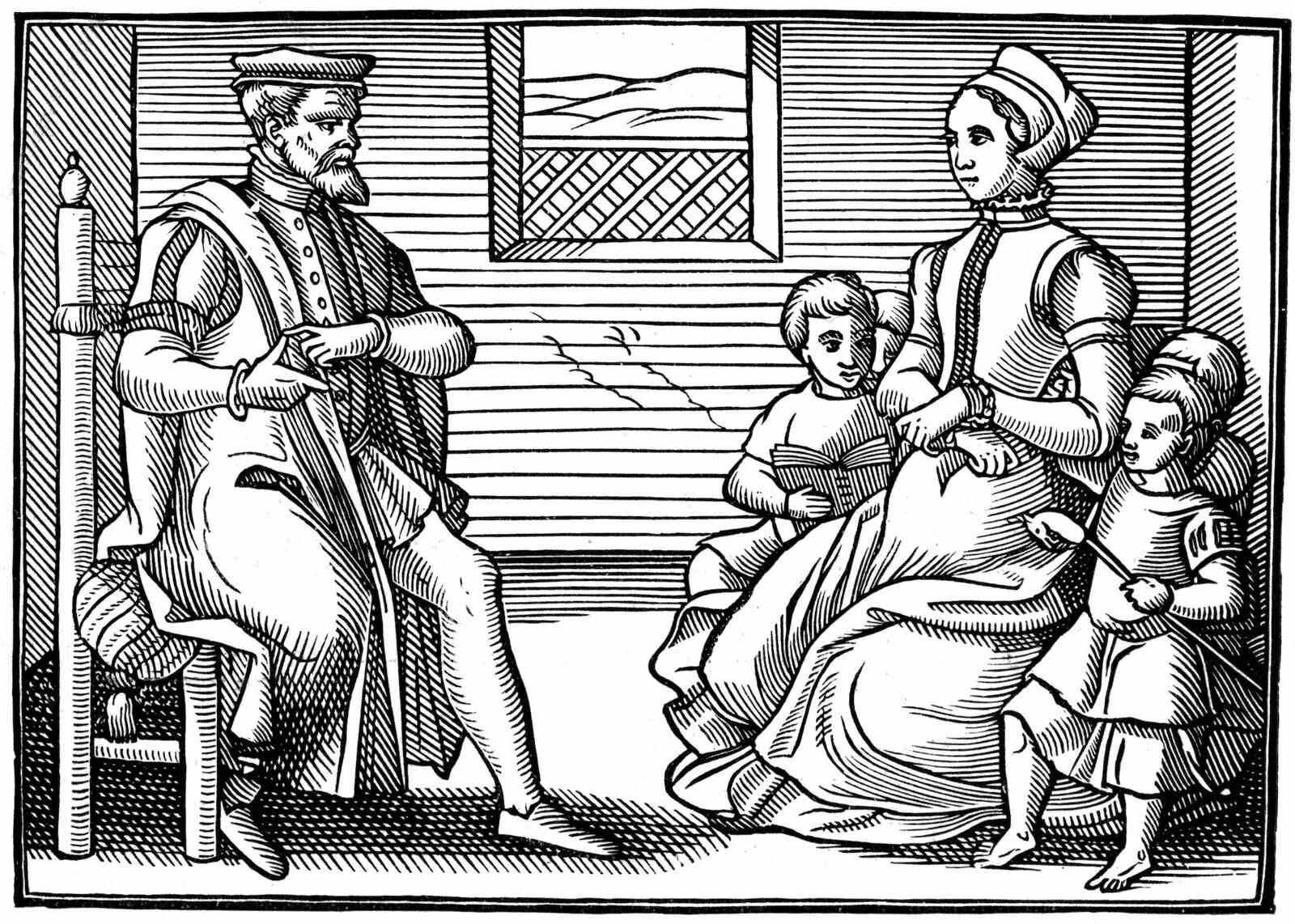
The Puritans were a group of English Protestants in the 16th and 17th centuries who sought to purify the Church of England from its perceived Roman Catholic practices. Their beliefs and way of life greatly influenced the early development of the United States. In this article, we will delve into 19 fascinating facts about Puritan children, shedding light on their upbringing, education, and daily lives. From the strict discipline they faced to the games they played, these insights will offer a glimpse into the world of Puritan youth. Let's embark on a journey to discover the unique experiences and challenges that shaped the lives of Puritan children.
Key Takeaways:
- Puritan children were expected to act like adults, work hard, and follow strict rules. Their upbringing shaped American culture and the idea of childhood.
- Puritan kids learned about religion, did chores, and faced tough punishments. Their values still impact American society today.
Puritan Children Were Viewed as "Miniature Adults"
Puritan children were expected to exhibit maturity and responsibility from a young age. They were regarded as miniature adults and were held to the same behavioral standards as their elders.
The Role of Children in Puritan Society
In Puritan society, children were considered integral to the family structure. They were seen as a blessing from God and were expected to contribute to the household through chores and obedience.
Education Was a Priority
Puritans placed a strong emphasis on education, believing that children should be literate to read the Bible and understand religious teachings. Thus, formal education was highly valued in Puritan communities.
The Influence of Religion
Religious teachings permeated every aspect of a Puritan child's life. They were immersed in the doctrines of the Puritan faith from a tender age, shaping their worldview and moral compass.
Punishments Were Severe
Puritan children were subject to strict discipline, with harsh punishments meted out for disobedience or moral transgressions. This approach aimed to instill a deep sense of obedience and adherence to religious principles.
Gender Roles Were Clearly Defined
Puritan society adhered to rigid gender roles, and children were socialized accordingly. Boys and girls were raised with distinct expectations regarding their future roles as men and women in the community.
Work Was Integral to Upbringing
From an early age, Puritan children were involved in household chores and agricultural tasks. This hands-on involvement instilled a strong work ethic and a sense of responsibility.
The Concept of "Original Sin"
Puritan theology emphasized the concept of "original sin," teaching children that they were born sinful and must strive for redemption through piety and righteous living.
Marriage at a Young Age
Puritan girls were often married off at a young age, with the average age of marriage for women being in their late teens. This practice was rooted in the belief that marriage was a fundamental aspect of life and served as a means of spiritual growth.
The Importance of Community
Puritan children were raised within a tightly-knit community where communal values and collective responsibility were paramount. This environment fostered a sense of belonging and mutual support.
The Significance of Sabbath Observance
Sundays held immense importance in Puritan households, with children expected to participate in lengthy church services and adhere to strict Sabbath observance, including refraining from leisure activities.
The Impact of Literature
Puritan children were exposed to literature that reinforced religious teachings and moral lessons, with an emphasis on texts that promoted piety and virtuous living.
Apprenticeships and Vocational Training
Boys often underwent apprenticeships to learn trades, while girls received vocational training in domestic skills, preparing them for their future roles as providers and homemakers.
The Fear of Witchcraft
Puritan children were raised in an environment fraught with the fear of witchcraft, with tales of witch trials and supernatural occurrences shaping their understanding of good versus evil.
The Influence of Parental Authority
Parental authority was paramount in Puritan households, and children were expected to show unwavering respect and obedience to their parents and elders.
The Concept of "Visible Saints"
Puritan children were taught to aspire to become "visible saints," individuals who displayed outward signs of being among the elect, or chosen by God for salvation.
The Impact of Mortality Rates
High mortality rates among children in the colonial era meant that Puritan families often grappled with the loss of young siblings, shaping the children's understanding of mortality and the transient nature of life.
The Legacy of Puritan Values
The values instilled in Puritan children, including discipline, piety, and a strong work ethic, left a lasting imprint on American culture, influencing societal norms and attitudes toward education and morality.
The Evolution of Childhood
The Puritan approach to child-rearing and education played a pivotal role in shaping the evolving concept of childhood in American history, leaving a profound impact on future generations.
The upbringing of Puritan children was deeply intertwined with the religious, social, and cultural fabric of the time, shaping their worldview and values in profound ways. The legacy of Puritan values continues to resonate in American society, underscoring the enduring influence of this historical period on the nation's collective identity.
Conclusion
In conclusion, these fascinating facts shed light on the lives of Puritan children, offering a glimpse into their upbringing, education, and daily experiences. Despite the challenges they faced, these children exhibited resilience and adaptability, shaping the future of the Puritan community. By understanding their world, we gain valuable insights into the historical and cultural context of the Puritan era, fostering a deeper appreciation for the complexities of childhood in early America.
FAQs
What were the key values instilled in Puritan children?
Puritan children were raised with a strong emphasis on discipline, obedience, and religious piety. They were taught to adhere to strict moral codes and to prioritize their spiritual development from a young age.
How did Puritan children spend their leisure time?
Puritan children engaged in a variety of activities during their leisure time, including games such as tag, hide and seek, and hopscotch. They also participated in chores, crafts, and storytelling, fostering a sense of community and creativity within their daily lives.
Was this page helpful?
Our commitment to delivering trustworthy and engaging content is at the heart of what we do. Each fact on our site is contributed by real users like you, bringing a wealth of diverse insights and information. To ensure the highest standards of accuracy and reliability, our dedicated editors meticulously review each submission. This process guarantees that the facts we share are not only fascinating but also credible. Trust in our commitment to quality and authenticity as you explore and learn with us.


